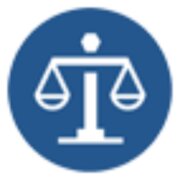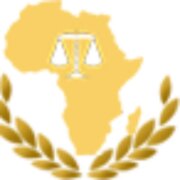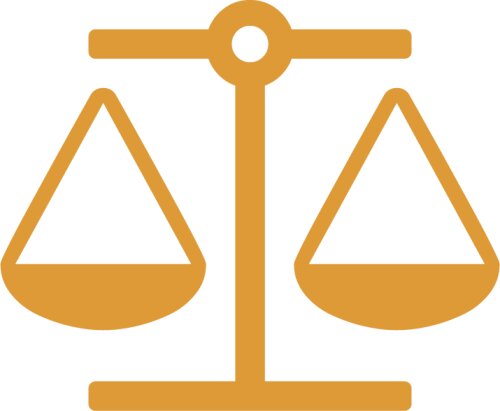Best Space Law Lawyers in Kinshasa
Share your needs with us, get contacted by law firms.
Free. Takes 2 min.
List of the best lawyers in Kinshasa, DR Congo
About Space Law in Kinshasa, DR Congo
Space Law is an emerging field of international and national legal frameworks that govern activities related to outer space. In Kinshasa and the broader Democratic Republic of the Congo (DRC), Space Law is particularly nascent, reflecting global treaties and principles such as the Outer Space Treaty of 1967. While Kinshasa itself may not have robust local legislation specifically dedicated to Space Law, the DRC's interest in technological advancement and space initiatives forms the backdrop of ongoing legal and policy developments.
Why You May Need a Lawyer
As an evolving domain, Space Law presents unique challenges and opportunities that may require legal assistance. Individuals or organizations in Kinshasa may seek legal advice for several reasons, including:
- Engaging in space-related business ventures, such as satellite deployments or space exploration collaborations.
- Understanding compliance with international space treaties and national regulations.
- Protection of intellectual property related to technological innovations used in space activities.
- Legal support in establishing partnerships with international space enterprises.
- Resolving disputes that arise from space missions or satellite service agreements.
Local Laws Overview
While the Democratic Republic of the Congo may not have a comprehensive set of laws specific to space activities, the country aligns with international space law principles. Key aspects relevant to Space Law in Kinshasa include:
- Commitment to the peaceful use of outer space as per the Outer Space Treaty.
- Adherence to the principles of non-appropriation of outer space, including the moon and other celestial bodies.
- Responsibility for national space activities, whether conducted by governmental or non-governmental entities.
- Liability for damage caused by space objects, in line with the Liability Convention of 1972.
- Registration of space objects launched into orbit, per the Registration Convention of 1976.
Frequently Asked Questions
What is Space Law?
Space Law encompasses international and national regulations that govern human activities in outer space, addressing issues like satellite communication, space exploration, and commercial space ventures.
Does the DRC have its own Space Law legislation?
Currently, there is no comprehensive national Space Law in the DRC. However, international treaties are influential, and there may be upcoming legal frameworks as the country's interest in space grows.
Can individuals or companies from Kinshasa engage in space activities?
Yes, with the appropriate licenses and international partnerships, individuals and companies can participate in space-related activities consistent with international laws.
What role does the government play in space activities?
The government is responsible for ensuring compliance with international treaties, issuing relevant licenses, and negotiating international collaborations.
Are there any restrictions on private companies from the DRC launching satellites?
Private companies may launch satellites, provided they comply with necessary regulations and international treaties enforced by national authorities.
What liabilities do I face if my space object causes damage?
If a space object launched by or from the DRC causes damage, international law holds the country liable for reparations and compensation.
How do I protect my intellectual property in space-related technology?
Seek legal advice on international patents and copyrights to ensure protection across jurisdictions engaged in space activities.
Where can I register a satellite launched from the DRC?
Satellites should be registered with the United Nations via national authorities, ensuring they are documented under the Registration Convention of 1976.
Can non-governmental entities take part in space activities in the DRC?
Yes, non-governmental entities are encouraged to engage in space activities, aligning with national and international legal requirements.
Who can I contact for legal advice on Space Law in Kinshasa?
Contact legal practitioners specializing in Space Law and international treaties, or engage with relevant government bodies overseeing space regulations.
Additional Resources
For further information and resources regarding Space Law in Kinshasa, consider the following:
- Ministry of Scientific Research and Technological Innovations: Overseeing technological developments and potential space endeavors.
- Congo's Space Exploration Institute (fictional example): A potential body for space-related inquiries and initiatives.
- United Nations Office for Outer Space Affairs (UNOOSA): Provides international guidance on implementing space treaties and agreements.
Next Steps
If you require legal assistance with Space Law matters in Kinshasa, here are some steps to consider:
- Research and consult with legal experts specializing in international and Space Law.
- Reach out to governmental departments related to science and technologies for guidance.
- Engage with international bodies like UNOOSA for compliance and registration information.
- Join local and international space law forums for the latest legal developments and networking opportunities.
Lawzana helps you find the best lawyers and law firms in Kinshasa through a curated and pre-screened list of qualified legal professionals. Our platform offers rankings and detailed profiles of attorneys and law firms, allowing you to compare based on practice areas, including Space Law, experience, and client feedback.
Each profile includes a description of the firm's areas of practice, client reviews, team members and partners, year of establishment, spoken languages, office locations, contact information, social media presence, and any published articles or resources. Most firms on our platform speak English and are experienced in both local and international legal matters.
Get a quote from top-rated law firms in Kinshasa, DR Congo — quickly, securely, and without unnecessary hassle.
Disclaimer:
The information provided on this page is for general informational purposes only and does not constitute legal advice. While we strive to ensure the accuracy and relevance of the content, legal information may change over time, and interpretations of the law can vary. You should always consult with a qualified legal professional for advice specific to your situation.
We disclaim all liability for actions taken or not taken based on the content of this page. If you believe any information is incorrect or outdated, please contact us, and we will review and update it where appropriate.











